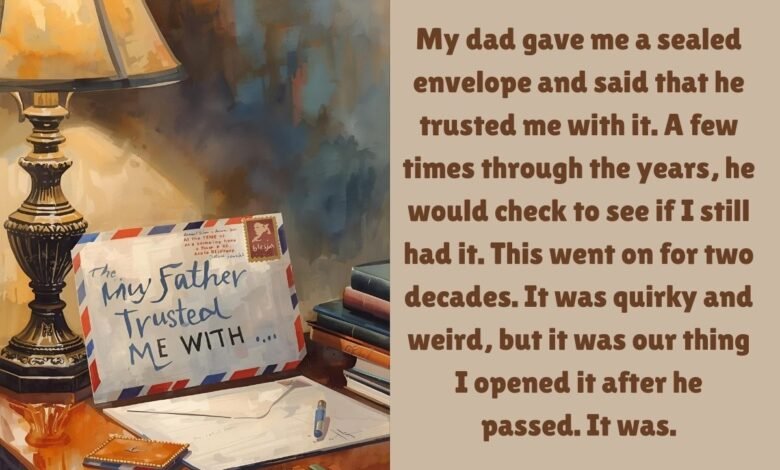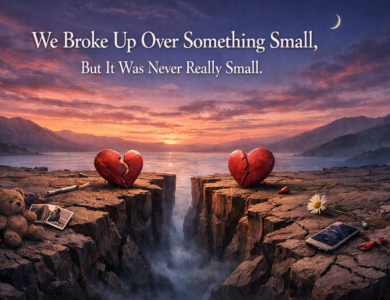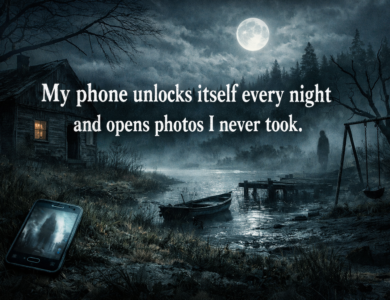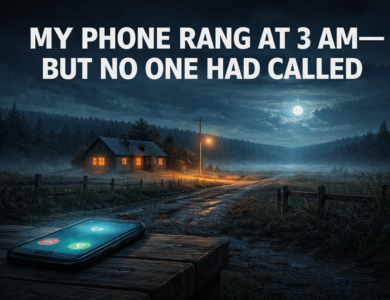
My dad gave me a sealed envelope and said that he trusted me with it. A few times through the years, he would check to see if I still had it. This went on for two decades. It was quirky and weird, but it was our thing. I opened it after he passed. It was empty.
Just a blank sheet of paper inside. No writing. No secret code. Nothing. For a few minutes, I thought maybe there was something invisible, so I held it up to the light, tried to warm it up with my hands, even rubbed a pencil over it like in those detective movies. Still nothing.
At first, I laughed. Typical dad. Always with his jokes. But the more I sat with that envelope, the more I started feeling like maybe there was something I was missing. Twenty years of guarding it like treasure… and for what?
My dad wasn’t the type to do things for no reason. He was a quiet man, worked as a mechanic, and always smelled like oil and coffee. He didn’t say much, but when he did, you listened. He taught me to fix my first car when I was thirteen. We built things together in the garage, shared a lot of silent afternoons with music in the background.
And every so often, out of nowhere, he’d ask, “You still got it?” I’d nod or pull it from wherever I had it hidden—under the mattress, in a shoe box, in my desk drawer. He’d just smile, tap it once, and move on.
It became our ritual. Never talked about what was inside. Never asked me to open it. Just a sealed envelope with his name written neatly across the top in blue ink.
After the funeral, after the condolences and casseroles, I sat alone on the porch, that envelope in my lap. I kept flipping it over, trying to feel for something—anything. But there really was nothing inside.
I thought about it for days. Took it to the attic and rummaged through old boxes, looking for clues. Found photos of him as a young man, some notes, a few random receipts. No mention of the envelope.
Then one night, I had this memory pop up. I was sixteen, had just wrecked my bike, came home with a bloody elbow and a scraped chin. I was upset—mostly with myself. I had yelled, said I wanted to be left alone. My dad didn’t say a word. Just left the room and came back with the envelope.
He placed it gently on the nightstand beside me and said, “This is still yours. Don’t forget.” I didn’t understand it then. I just assumed he was being weird.
But now, it felt like he had been trying to say something all along.
I called my aunt, his sister, and asked if she knew anything about the envelope. She didn’t, but she said something strange. “Your dad never trusted many people. Not even with small things. But he trusted you.”
That hit me.
Maybe the envelope wasn’t about what was inside. Maybe it was about what it represented.
Still, a small part of me couldn’t let go of the mystery. So I took it to a friend of mine, a guy named Tavi, who works in document preservation. He’s the type that restores old letters and museum papers.
He ran some tests. UV light. Moisture exposure. Heat sensitivity. We even joked about spy-level secrets.
His verdict: “It’s just a piece of old paper. No chemical treatments. Nothing written in lemon juice. Not even indentations. It’s really just… blank.”
So that was that. Or so I thought.
A few weeks later, I got a letter in the mail. Handwritten, in slanted cursive. No return address. Inside was a photo of my dad and a man I didn’t recognize, standing in front of a car garage. On the back of the photo was a message:
“Your father kept more than you think. Look under the toolbox.”
I froze. Under the toolbox?
Back in his garage, which still smelled like motor oil and old metal, I stood in front of his heavy red toolbox. It was the one I wasn’t allowed to touch growing up. I pulled the bottom drawer all the way out, then reached underneath.
Taped to the bottom was a small key and a note: “Safe deposit box. Glenfield Bank. Box 217.”
I hadn’t even known he had a safe deposit box. I didn’t even know people still used those.
At the bank, after showing ID and going through what felt like a hundred forms, they handed me a small, narrow box. My hands were shaking. Inside was a journal. A thick one. The leather cover was cracked, worn from years of handling.
I opened it.
The first page read: “For my son. If you’re reading this, it means I’m gone. I left the envelope empty on purpose. This is the rest of the message.”
I didn’t know whether to laugh or cry.
The journal was filled with entries, dated from the time I was a baby all the way until last year. Thoughts, moments, letters he never sent. Things he wanted to say but didn’t know how.
He wrote about the day I was born, how scared he was holding me, how he felt unworthy to be a father.
He wrote about mom. About their fights, her leaving, and the way he tried to hold it together for me.
There were pages about the nights he couldn’t sleep, worrying about money, about whether he was doing enough.
But the part that hit the hardest was this:
“The envelope is a symbol. I gave it to you because I knew one day, you’d open it. And I hoped that when you did, you’d remember that trust is the most valuable thing a man can give. Not money. Not things. Trust.”
I read that sentence over and over.
He trusted me with an empty envelope for twenty years. And I never lost it.
There were more entries. Stories from his youth. Regrets. Hopes. At the very end, there was a photo of us—me at age five, sitting on his shoulders, both of us grinning like idiots.
And one last message: “I didn’t have much to leave you. But I hope this journal reminds you that you were always enough. You always had my trust. Now go build something with it.”
I stayed in that bank room for a long time.
Afterward, I went back to the garage and just sat there. Thinking. Remembering. I brought the journal with me and read parts of it out loud. Maybe just for me. Maybe hoping he was listening.
That night, I didn’t sleep.
The next morning, I drove to my old high school. I had an idea, one that felt a little crazy. I met with the principal, who surprisingly remembered me, and told her I wanted to set up a small scholarship fund.
Nothing huge. Just something to help kids who didn’t have much, but who had someone that believed in them.
I called it The Trust Envelope Award.
Each year, a student would receive an envelope with a small scholarship and a handwritten note reminding them of their worth.
A few months later, I met the first recipient—a quiet girl named Ana. She opened the envelope, smiled, and asked why it was called that.
I told her the story. About my dad. About the empty envelope. About how something so simple can carry so much meaning.
She didn’t say much. Just nodded and said, “I’ll keep it safe.”
Just like I did.
Years went by. The award grew. More people heard the story and started donating. It became a little local tradition. Kids who won the envelope often wrote back years later, saying it gave them a strange kind of hope.
One even said, “It reminded me that someone trusted me, even when I didn’t trust myself.”
That one made me cry.
Looking back, my dad gave me more than a sealed envelope. He gave me purpose. Direction. A reminder that sometimes, what we pass on isn’t about wealth or possessions—it’s about belief. About choosing someone, even when they don’t see what you see in them.
And maybe that’s what legacy really is.
Not what you leave behind in a will, but what you plant in someone’s heart.
My dad didn’t say it out loud. He never had to. But now, whenever someone asks me what that envelope was about, I smile and say:
“It was empty. But it held everything.”
So here’s the lesson: Trust people. Not blindly, but deeply. Teach them to hold onto something—even if they don’t understand it yet. Remind them they matter, without needing a reason. And if you’re ever lucky enough to be trusted with someone’s version of an envelope… guard it well.
You never know what it really holds.
If this story touched you, or reminded you of someone who left a quiet legacy in your life, please share it. Maybe someone else needs the reminder too. And don’t forget to like this post—it helps more people find it.
Read More: The Pool Party That Changed Everything







